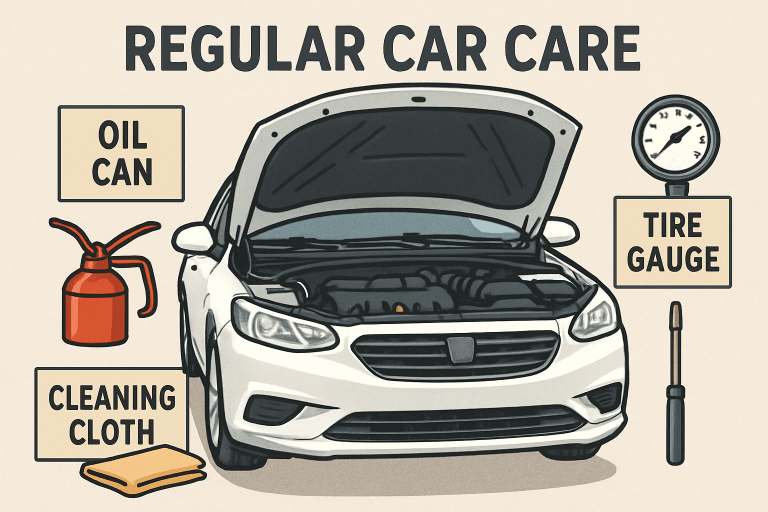
Introduction
Maintaining your car is about much more than looking shiny on the outside—it’s essential to ensure your vehicle stays safe and dependable for years to come. Regular upkeep reduces the risk of unexpected breakdowns and costly repairs, and by adopting smart maintenance habits, you protect both your investment and your peace of mind. Start your car care journey with trusted experts at Atlanta Toyota Service for convenience, expertise, and peace of mind.
Even the most reliable vehicles need routine attention to operate at their best. By staying on top of essential maintenance tasks, you ensure a smoother and more enjoyable drive and contribute to long-term savings. Whether you’re a seasoned car owner or new behind the wheel, using a proactive approach can prevent future headaches and maximize your car’s value.
Simple habits, like keeping a maintenance schedule and dealing with minor issues before they escalate, can make all the difference. Pay attention to manufacturer recommendations, embrace periodic checks, and be rewarded with safer journeys and fewer surprises.
Your local Toyota dealership near me can be an excellent resource for everything from professional repairs to expert advice for keeping your car in top shape year-round.
Regular Oil Changes
Frequent oil changes remain one of the most effective ways to preserve engine longevity. Fresh oil ensures smooth lubrication of the engine’s moving parts and prevents the buildup of harmful residue and contaminants. Most vehicles benefit from oil changes every 5,000 to 7,500 miles, although you should always consult your owner’s manual for the precise interval. Skipping oil changes can lead to overheating, poor performance, and long-term engine damage—a scenario no driver wants to face.
Tire Maintenance
Proper tire care is fundamental for both your safety and your wallet. Under- or overinflated tires wear unevenly, compromise traction, and can lower your fuel efficiency. Inspect your tire pressure at least once a month—don’t forget the spare!—and keep them inflated to the recommended PSI found in your owner’s manual or the driver’s side door jamb. Regular rotations can extend tire life, keeping your ride smooth and your investments protected.
Brake System Checks
Your car’s braking system is one of its most vital safety features. Inspect brake pads and rotors for wear every few months, and listen closely for any squeaks, grinding noises, or delays in stopping response. These signals might indicate it’s time for professional attention. Failing brakes can cause accidents, so never ignore warning signs—address problems quickly to maintain reliable stopping power.
Fluid Levels and Quality
Your vehicle relies on a network of critical fluids—coolant, brake fluid, transmission fluid, and power steering fluid—in addition to motor oil. Routinely check fluid levels and look for signs of contamination, such as discoloration or odd smells. Topping off or flushing old fluids helps prevent overheating, component failure, and costly repairs. Modern cars often alert you to low fluid levels on the dashboard, but manual checks ensure nothing gets missed.
Battery Maintenance
Never overlook your car battery. A weak or corroded battery can strand you unexpectedly, especially in extreme temperatures. To ensure reliability, clean the battery terminals frequently to prevent buildup, and check your battery’s voltage regularly, especially after two to three years of service. Retailers and auto shops often offer complimentary or low-cost battery testing for peace of mind.
Air Filter Replacement
Clogged air filters make your engine work harder, increase fuel consumption, and reduce your car’s overall performance. As your manufacturer advises, check your engine air filter every 12,000 to 15,000 miles. Swapping in a new one is a simple, affordable task that yields big rewards in efficiency and longevity. Many modern vehicles also have cabin air filters that should be replaced routinely for better HVAC efficiency and air quality.
Regular Cleaning and Waxing
Routine washes keep your car looking fresh but also prevent corrosive substances—like salt, bird droppings, and insect remains—from damaging your paint and undercarriage. Waxing every few months forms a lasting barrier against moisture and UV rays, which can cause fading or rust over time. In regions with snow or heavy rain, stepping up your car care routine is especially important to prevent long-term corrosion.
Keep Detailed Service Records
An organized log of all maintenance and repairs provides a clear overview of your vehicle’s health. This makes it easier to stay on top of upcoming services and can also be a selling point when you trade in or sell your car. Accurate records help mechanics quickly assess your car’s needs and can even boost your car’s resale value by showing a proven track record of regular upkeep.
Integrating these proactive strategies into your car care habits means fewer surprises, greater safety, and optimal performance—no matter how many miles you put on your vehicle.